Customer Service: XXX
ADDRESS
123 Main Street, Anytown
CA 12345 USA.
XXX
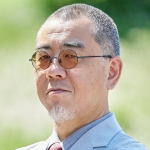
Prof. Tsuyoshi FUNAKI is a principle investigator (PI) of Power System Laboratory in Division of Electrical, Electronic and Information Engineering, Graduate School of Engineering in Osaka University. He is currently working on the research and development of renewable energy system and smart grid technology based on power electronics using incoming wide band gap semiconductor power devices; e.g. SiC, GaN, and also working on reliability assessment of power supply facilities. He received the B.E. and M.E. degrees in electrical engineering and the Ph.D. degree all from Osaka University, Osaka, Japan. He was on the staff of Research Associate with Osaka University in 1994, and promoted to Associate Professor in 2001. In 2002, he was an Associate Professor with Kyoto University. Now, he has been a full Professor with Osaka University since 2008.
Speech Title: Reliability of Power Electronics Systems from the Perspective of Power Devices
Abstract: In the utilization of renewable energy, power electronics such as grid-connected inverters are indispensable. Therefore, enhancing the reliability of power electronics is essential for the stable operation of renewable energy systems. The most common cause of failures in power electronic circuits is the power device. Failures can arise not only from the power device itself but also from the auxiliary components that constitutes the power device. The materials used in power devices include semiconductors, metals, ceramics, and resins, each with different coefficients of thermal expansion. Temperature changes in the power device during operation and shutdown of the power electronic equipment induce variations in stress at the joints between these materials, leading to fatigue degradation. This talk will outline the failure mechanisms of power devices and present prospects for efforts aimed at improving the reliability of systems utilizing power electronics.
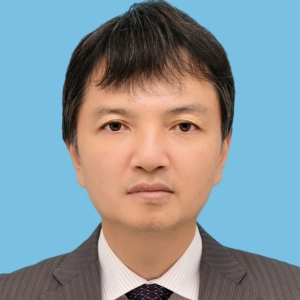
Makoto Hagiwara (Senior Member, IEEE) was born in Tokyo, Japan, in 1979. He received the B.S., M.S., and Ph.D. degrees in electrical engineering from the Tokyo Institute of Technology, Tokyo, Japan, in 2001, 2003, and 2006, respectively. From 2006 to 2015, he was an Assistant Professor with the Department of Electrical and Electronics Engineering, Tokyo Institute of Technology. From 2015 to June 2025, he was an Associate Professor in the same institute, whose name is changed to Institute of Science Tokyo from 2024. Since July 2025, he has been a Professor with the Faculty of Information Science and Technology, Hokkaido University. His research interests include dc-to-dc converters for electric trains/vehicles, high-voltage high-power converters for utility applications and renewable energies, and HVDC technologies. Dr. Hagiwara was the recipient of the 2010 International Power Electronics Conference (IPEC-Sapporo/ECCE-Asia) second prize paper award, the 2012 and 2013 IEEE Industry Applications Society Industrial Power Converter Committee first prize paper awards, the 2014 Isao Takahashi Power Electronics Award, the 2023 TPEL AE Excellence Award, and the 2024 Nagamori Award.
Speech Title: Study on multilevel power conversion technologies for electric drives
Abstract: Power electronics technologies are widely used in our daily life today. Multilevel power conversion technology, which is one of power electronics technologies, has been conventionally applied in electric power systems because it can achieve high voltage and large-capacity power conversion without transformers. Meanwhile, with the rapid development of multilevel power conversion technology since the late 2010s, the number of studies of the above technology aiming at downsizing, weight reduction, integration, higher power density, multifunctionality, and high efficiency, has been increasing in Japan and overseas. As a result, the applications of the above technologies begin to diversify to low-voltage, renewable energy, power storage, various power sources, and transportation and industrial applications.
In this presentation, entitled “Study on multilevel power conversion technologies for electric drives,” latest studies on state-of-the-art multilevel power conversion technologies for electric drives conducted at the laboratory will be introduced.
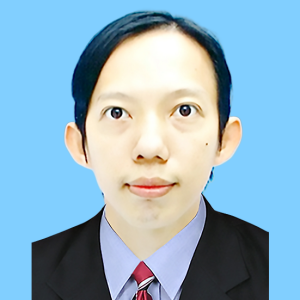
Nguyen Gia Minh Thao obtained the B. Eng. (honors) degree in electrical and electronics engineering from Vietnam National University – Ho Chi Minh City University of Technology, Vietnam, in 2009, and the Dr. Eng. degree in electrical engineering and intelligent control from Waseda University, Japan, in 2015. From 2015 to 2020, he was a Postdoctoral Research Fellow in Waseda University and Toyota Technological Institute, Japan. From 2020 to 2023, he was an Assistant Professor in Nagoya University and Toyota Technological Institute, Japan. Since 2023, Dr. Thao has been an Associate Professor in Shimane University, Japan, where he is the head of the Electric Motors and Energy Systems Laboratory. He has been a Senior Member of the IEEE, and an Associate Editor of IEEE Transactions on Industry Applications, since 2022. He has also been a Guest Editor for special issues of refereed journals such as Electronics and IET The Journal of Engineering. Moreover, he has been an Editorial Member of Journal of Computer Science and Cybernetics, since 2021. His research interests include advanced control methods, electric motors and drives, renewable energy systems, power electronics, intelligent battery management systems, electromagnetic analysis and evaluation, computational intelligence, and electric vehicles.
Speech Title: Optimization of Hybrid Renewable Energy System Including EVs and Intelligent Control of Active Power Filter for Offshore Wind Farm
Abstract: Nowadays, it is significant to focus on renewable energy research and efficient utilization of distributed renewable energy sources such as photovoltaic and wind power systems. A microgrid is a self-managed system with high flexibility which encompasses these energy resources as well as interconnected consumers. This research aims to design an effective method of power management for a microgrid in both the isolated and grid-connected operating modes. The proposed optimization model seeks to strike a balance between energy usage, protecting the life of batteries, and maximizing economic benefits for users in the microgrid, with consideration of the real-time electricity price and constraints of the power grid. In addition, to accurately account for the dynamic nature of not only the stationary battery banks used as the energy storage systems but also the built-in batteries of electric vehicles, the model is represented as a multi-objective, multi-parametric and constrained problem. Furthermore, the proposed solution is based on the Lagrange Multiplier theory, that helps achieve good performance with less computational load.
In addition, this talk briefly presents a scheme based on fuzzy logic for automatically and suitably fine-tuning the key control coefficient of a shunt active power filter (SAPF), which is used to effectively regulate the voltage and current harmonic distortions in the power grid with an offshore wind farm connected. With the scheme, the SAPF can be operated in two different control modes based on the voltage detection method. In the first mode, the SAPF has an objective to control the total harmonic distortion (THD) of the grid voltage at the point of common coupling (PCC). In the latter mode, the SAPF can regulate the THD of both the grid voltage and current to acceptable ranges even under unpredicted changes in the grid's configuration.
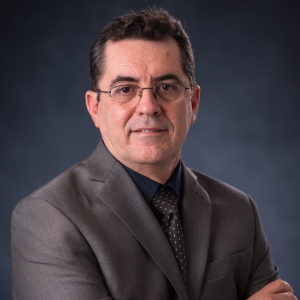
Dr. Julian Cardenas Barrera is an Associate Professor and the NB Power Industrial Research Chair in Smart Grid Technologies at the University of New Brunswick, Canada. With a Ph.D. in Electrical Engineering, his research focuses on Smart Grids, Renewable Energy Integration, Machine Learning for Energy Forecasting, and Demand-Side Management. Dr. Cardenas Barrera has led numerous collaborative projects with industry partners, securing significant funding to advance grid modernization and sustainability. An active IEEE Senior Member, he has published extensively in top-tier journals and conferences, supervised over 30 graduate students and postdoctoral fellows, and serves as an Associate Editor for IEEE Transactions on Industrial Applications. His work bridges academic innovation with real-world energy challenges, emphasizing practical solutions for resilient and efficient power systems. Dr. Cardenas Barrera is honored to contribute to CPESE2025, sharing insights on cutting-edge smart grid technologies and their role in the global energy transition.
Speech Title: From Forecasts to Actions: Closing the Loop Between Probabilistic DER Forecasting and Volt/VAR–Curtailment Optimization
Abstract: As electric power systems transition toward high penetrations of renewable and distributed energy resources (DERs), the challenge is no longer just predicting variability; but acting on it. Traditional deterministic forecasts fail to capture uncertainty, forcing system operators to overschedule reserves and curtail generation. This talk will explore how probabilistic forecasting methods, when coupled with volt/VAR control and curtailment optimization, can unlock flexibility, reduce costs, and enhance grid resilience. Drawing on case studies from Canada and international practices, I will demonstrate how probabilistic, uncertainty-aware optimization can increase DER hosting capacity, reduce unnecessary curtailment, and enable proactive control. I will also discuss emerging trends such as AI-driven forecasting, decentralized optimization, and standardization efforts that are shaping the future of resilient, sustainable grids.
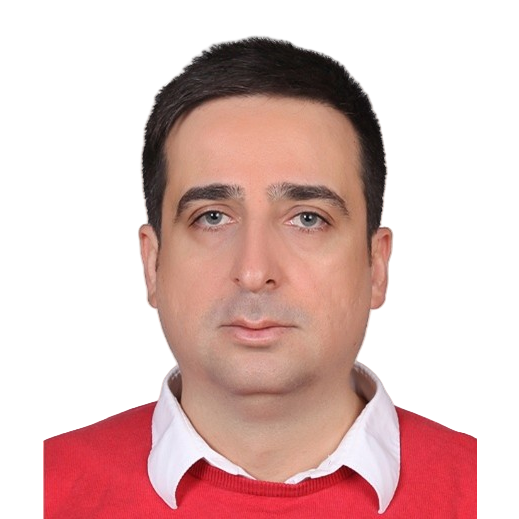
Dr. Heybet KILIÇ is an Associate Professor at the Department of Electric Power and Energy, Dicle University, Turkey. He received his Ph.D. degree in Electrical and Electronics Engineering from Dicle University in 2021. His research interests include smart grids, microgrid control, renewable energy integration, hydrogen energy systems, cyber-physical digital twins, and AI-based energy management. He has held international research positions at TU Delft (Netherlands), Aalborg University (Denmark), and Hamburg University of Technology (Germany), contributing to several EU Horizon projects in leading European laboratories such as CRES (Greece), OFFIS (Oldenburg, Germany), RWTH Aachen (Germany), and RSE (Milan, Italy). Prior to his academic career, he gained significant industry experience at Turkcell and Huawei in network operations and transmission systems. Prof. KILIÇ has authored more than 30 peer-reviewed journal articles indexed in SCI/SCI-Expanded and serves as a Senior Member of IEEE.
Speech Title: Fault-Tolerant Control Strategies for Resilient Microgrid Operation in the Face of Renewable Uncertainties
Abstract: The integration of distributed renewable energy sources like solar and wind into microgrids introduces significant operational challenges, especially under fault conditions and system uncertainties. This presentation explores advanced fault-tolerant control (FTC) strategies designed to maintain resilient microgrid operations in both grid-connected and islanded modes. Emphasis will be placed on model-free, adaptive, and reinforcement learning-based control architectures capable of mitigating the impact of inverter faults, load mismatches, sensor failures, and communication delays. Real-time simulations and hardware-in-the-loop validations demonstrate how such intelligent control frameworks ensure fast and robust fault detection, isolation, and recovery. By addressing both control-level robustness and system-wide resilience, the session outlines a path forward for future-ready microgrids that combine fault tolerance with smart, decentralized energy management.